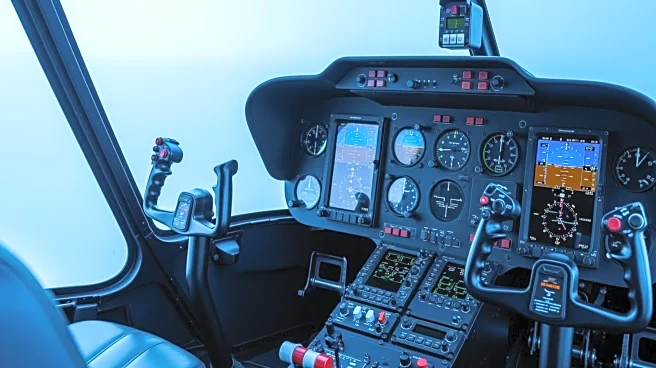What's Happening?
Bell is contributing its 505 single-engine helicopter and training expertise to the US Army's Flight School Next program, which aims to revamp basic helicopter pilot training. The initiative seeks to provide a comprehensive package that includes aircraft,
instructor pilots, maintenance, administrative support, and simulation. Matthew Dorram, Bell's capture lead for Flight School Next, highlighted the program's goals: producing highly trained army aviators, reducing costs compared to the current program, and modernizing training at Fort Rucker, Alabama, using the latest learning technologies. Bell has been developing its solution for over two years, anticipating the project's launch in 2024.
Why It's Important?
The integration of Bell's 505 helicopter into the Flight School Next program is significant for several reasons. It promises to enhance the quality of training for army aviators, potentially leading to better-prepared pilots who can effectively support national defense objectives. The program also aims to streamline costs by consolidating contracts and utilizing Bell's turnkey solutions, which could result in financial savings for the military. Furthermore, the modernization of training methods at Fort Rucker could set a new standard for military aviation training, incorporating advanced technologies to improve learning outcomes.
What's Next?
As Bell continues to develop its solution, the next steps involve finalizing the integration of its helicopter and training package into the Flight School Next program. The US Army will likely assess the effectiveness of the new training methods and technologies, potentially leading to broader adoption across other military training programs. Stakeholders, including military leaders and defense contractors, will be closely monitoring the program's progress and outcomes to evaluate its impact on pilot readiness and cost efficiency.
Beyond the Headlines
The modernization of military training programs like Flight School Next could have long-term implications for the defense sector. By leveraging cutting-edge technologies and innovative training methods, the program may influence future military training initiatives, encouraging a shift towards more efficient and effective training solutions. Additionally, the collaboration between Bell and the US Army highlights the growing importance of public-private partnerships in advancing military capabilities.
















